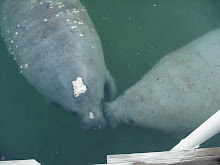As The Colonel and I continued our leisurely (and history filled) drive back to Florida, the first place we stopped in Kentucky was Frankfort, its capital. We had a specific place in Frankfort that we wanted to visit, the Frankfort Cemetery.
The Frankfort Cemetery was incorporated in 1844. Its 100 acres are on a bluff that overlooks the Kentucky River and the Capitol.
There are seventeen governors, some senators and several confederate soldiers buried in the cemetery but we were only interested in locating the final resting places of Daniel Boone, Rebecca Boone and Col. Isaac Trabue.
Most of us know that...Daniel Boone was a man, was a big man...and the rippinest, roarinest, fightinest man the frontier ever knew....
Daniel Boone (1734-1820) was a pioneer, explorer and woodsman. His major claims to fame were the blazing of the Wilderness Trail in the Cumberland Gap and the exploration and settlement of Kentucky. He married his wife, Rebecca (Bryan) Boone (1739-1813) in 1756.
They would have ten children. Their grandson, Enoch Boone would be the first white man born in Kentucky.
I had done some research to find out which section of the cemetery the Boone couple could be found (section G). The Colonel and I found the section and there was a sign pointing the way to the grave site (I thought the sign needed some work/updating. I think the N was a Z turned on its side).
We walked down the steps to the Boone monument. Our glee increased with each step as we got closer to the famous couple's final resting place.
The Boone monument was impressive and beautiful.
Daniel's name was on one side of the monument and Rebecca's on the other. There were four reliefs on the monument that depicted aspects of the Boones' lives.
Daniel and Rebecca did not die in Kentucky. In 1799, they moved to Missouri (at the time it was under Spanish rule) because Daniel lost his land claims in Kentucky for failing to register them properly. They were buried in Missouri when they died. In 1845, their bodies (what was left of them, only the larger, visible bones were moved) were disinterred and brought back to Kentucky and reburied at the Frankfort Cemetery. Missouri still claims that the Boone couple are buried in Missouri (or at least some remnants of their bodies are still in their original graves).
Our search for Col. Isaac Trabue's grave did not take long at all. Isaac's grave was very near the Boones' grave (it is speculated that the Trabue and Boone families are related). As a matter of fact when I took a picture of Isaac's grave I could see the Boone grave, as well as the Capitol, in the background.
Who is Col. Isaac Trabue you ask? He was the founder of the town I live in.
Col. Isaac Trabue was born in Kentucky (a true Kentucky Colonel) and served in the Union Army under Generals Anderson and Sherman. He owned coal mines and supplied coal to the Union transports on the Ohio and Mississippi Rivers. He owned a handful of slaves and put them into service for the Union Army as hospital nurses and working in the Quartermaster's department.
After the Civil War, the five-foot, red headed Col. Trabue became a lawyer and political leader in Kentucky. He was an avid lover of the game of chess and in 1883 he beat the world's best chess player, Johannes Zukerfort. Trabue also created a four-handed chess game and held competitions (held on the second Monday of December each year) while he lived in Florida. He designed the medal that was awarded to the winners. He and his wife, Virginia often played chess.
In 1885, the Trabues came to southwest Florida to settle on the 30 acres they had purchased two years earlier. This part of Florida was a wilderness when the Trabues moved here and was very sparsely inhabited. Col. Trabue eventually amassed about 380 acres on the south shore of the Peace River. Soon after their arrival, Col. Trabue realized he needed the railroad to help develop the town he envisioned....The town of TRABUE, Florida. He went to Boston and convinced the owners of the Florida Southern Railway to make his town of Trabue the country's southernmost terminus and build a grand resort hotel. In exchange, he deeded the railroad half of his real estate holdings. The first passenger train reached Trabue on August 1, 1886.
Col. Isaac Trabue named many of the streets of his town after members of his family. Those names still grace the street signs today. I often drive down Virginia Avenue each week.
In 1887, Col. Trabue "lost" his town of Trabue when a group of men met in December to incorporate the new town as Punta Gorda. It seems that Col. Trabue's red hair may have caused him to quarrel and litigate nearly everyone he did business with in town, which in turn, triggered the town's name change at its incorporation.
The Trabues continued to live in the little town after its name change.
In 1907, Col. Trabue became ill and wished to go back to Kentucky.
He died in Dawson Springs, Kentucky and is buried next to his father, in the Trabue family plot in Frankfort's cemetery.
The Trabue family was well-situated. Just seeing their family plot at the cemetery tells you so. The plot is large and fenced in. What was once a beautiful and grand grave site for Col. Trabue's ancestors now lies in a lovely ruin that inspires thoughts of Gothic novels.
I just had to know what the inside of this grave site looked like, so I put my camera lens up to one of the spaces in the filigree around the door.
The Colonel did a bit of genealogy on Col. Trabue's family when we got back home and he thinks that those buried in this in-ground mausoleum are Col. Trabue's grandparents.
I just loved the look and feel of this necropolis ruin. I can't tell you how many photos I took of it and how many different angles were involved. I would have loved to have seen it before it tumbled down.
At his death, Col. Isaac Trabue's estate was valued at $500,000. It consisted of Kentucky coal land (13,000 acres), Florida timber land (70,000 acres), and cypress land (2,000 acres), plus considerable holdings in Punta Gorda. However, his will was so unclear (wasn't he a lawyer?), Virginia, his widow (they had no children) and relatives litigated over it for years.Upon her death, Virginia Trabue was land-rich, but cash-poor. No one wanted to buy the land and she owed taxes on it. She died penniless. Friends paid for her burial and headstone. She is not buried in Kentucky next to her husband. Her grave site can be found at the Indian Spring Cemetery in Punta Gorda, Florida.
We had much more of Kentucky to experience and as we made our way to what would be our next stop, we passed this lovely antebellum mansion.
Its name is Ward Hall. It was built in 1857 by Junius Richard Ward. It was the summer residence for Mr. Ward and his wife, Matilda. Their winter residence was their plantation house near Leota Landing in Mississippi.
The Colonel and I did not visit Ward Hall. It was closed the day we drove past it. What an impressive sight it was, this Greek revival, antebellum plantation house, nestled among the rolling hills of Kentucky.





































































Interesting read sister.
ReplyDelete#7